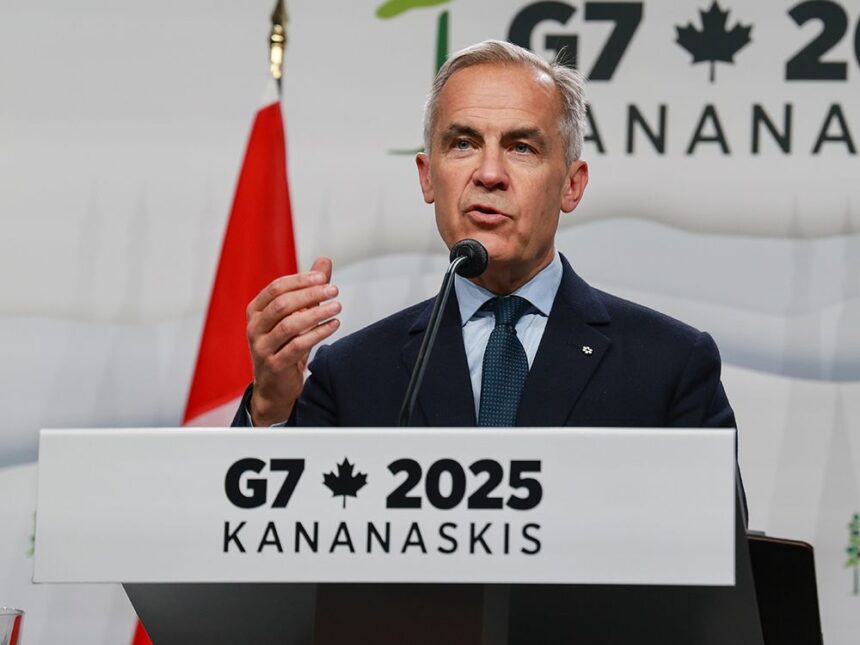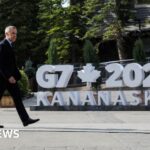Canada and India appear on the cusp of mending diplomatic ties, according to former Bank of Canada governor Mark Carney, who shared insights from the recent G7 summit in Italy. After months of tension between the two nations, Carney’s comments suggest a potential breakthrough in relations that deteriorated significantly last year.
“From what I understand, there’s been substantial progress in discussions between Canadian and Indian officials,” Carney told reporters on the sidelines of the summit in Puglia. “Prime Minister Trudeau has expressed a clear desire to reset the relationship, recognizing India’s growing importance in global affairs and our longstanding people-to-people connections.”
The diplomatic fallout began last September when Prime Minister Justin Trudeau made explosive allegations in Parliament linking Indian government agents to the murder of Sikh separatist Hardeep Singh Nijjar in British Columbia. India vehemently denied these claims, calling them “absurd” and “politically motivated,” which triggered a series of retaliatory measures.
Both countries expelled diplomats, with India suspending visa services for Canadians and demanding Canada reduce its diplomatic presence in India. The situation created significant challenges for the approximately 1.4 million Canadians of Indian descent and disrupted business and educational exchanges between the nations.
Recent data from Statistics Canada revealed the economic impact of this diplomatic chill, with bilateral trade dropping nearly 12% in the first quarter of 2024 compared to the same period last year. Tourism operators have reported cancellations of group tours, while Canadian universities saw a decline in applications from Indian students.
Conservative foreign affairs critic Michael Chong has criticized the Liberal government’s handling of the situation. “The government’s approach has damaged a crucial relationship without achieving justice for the Nijjar family,” Chong said during Question Period last month. “Meanwhile, Canadians with ties to India continue to bear the brunt of this diplomatic breakdown.”
The potential thaw comes as both countries face changing circumstances. India recently concluded its national elections, giving Prime Minister Narendra Modi a third term, albeit with a reduced majority that requires coalition partners. Canada, meanwhile, continues to navigate economic challenges and falling approval ratings for the Trudeau government ahead of an election expected next year.
According to Carney, who serves as a special envoy for the UN on climate action and finance, the G7 provided an opportunity for informal discussions that may have helped ease tensions. “There’s a growing recognition on both sides that the relationship is too important to remain in this state of tension,” he noted.
Balraj Singh Nijjar, son of the slain Hardeep Singh Nijjar, expressed cautious hope about diplomatic progress but emphasized the need for justice. “Any improvement in relations shouldn’t come at the expense of a thorough investigation into my father’s murder,” he told CBC News last week.
Foreign affairs experts suggest several factors may be driving this potential reconciliation. “India’s growing economic clout and its position as a counterbalance to China make it an essential partner for Western nations, including Canada,” explains Vivek Dehejia, an economics professor at Carleton University who specializes in India-Canada relations.
For its part, the Prime Minister’s Office has remained tight-lipped about specific developments, with a spokesperson saying only that “Canada values its relationship with India and remains committed to a diplomatic resolution of outstanding issues.”
The RCMP investigation into Nijjar’s murder continues, with no charges filed to date. Meanwhile, the Indian government maintains it had no involvement in the killing while expressing willingness to cooperate with Canadian authorities on broader security concerns.
Business leaders have welcomed signs of a potential diplomatic reset. The Canada-India Business Council reports that numerous projects and partnerships have been on hold during the diplomatic standoff. “Our members are eager to see normal relations restored,” said council president Victor Thomas. “The innovation potential between our countries is enormous, but it requires a stable diplomatic foundation.”
If relations do improve, several immediate benefits could follow, including restored visa services, increased trade missions, and renewed educational exchanges. However, security experts caution that deeper cooperation on intelligence and counter-terrorism—areas where the relationship has been particularly strained—may take longer to rebuild.
As both nations approach the anniversary of the diplomatic rupture this September, many observers see the potential reconciliation as pragmatic rather than a resolution of underlying tensions. “What we’re likely seeing is a decision to compartmentalize disputes while allowing normal diplomatic functions to resume,” suggests Stephanie Carvin, international relations professor at Carleton University and former national security analyst.
For thousands of Canadian families with ties to both countries, any improvement in relations offers practical relief after months of travel complications and visa uncertainties. As one community leader in Brampton put it: “People just want to visit relatives, conduct business, and maintain connections without being caught in geopolitical crossfire.”






